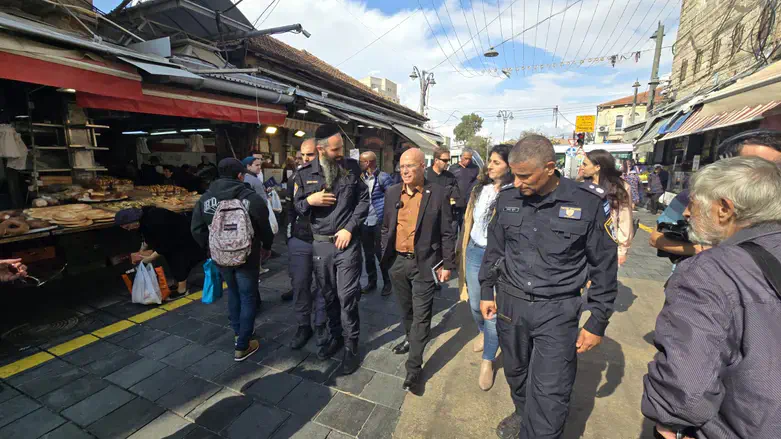
Hundreds of vehicles that caused panic among Jerusalem residents during the war, increased enforcement in the field of environmental quality, and a severe shortage of personnel were the cause of a special tour conducted on Sunday by the National Security Committee of the Knesset in the capital, with the aim of closely examining the activities of the city's police force.
"During the first days of the war, the police hotline received 150 calls from local residents who heard gunshots around the city," said Superintendent Moshe Ohayon, commander of the district urban policing unit.
He said that a thorough examination revealed that this was a deliberate attempt of car and motorcycle drivers who wanted to sow panic among the public. "We carried out strict enforcement and confiscated 164 vehicles and motorcycles. Since then, there has been a significant decline in such incidents," Ohayon added.
The data presented to the members of the committee indicate intensive activity by the unit since early 2024: over 3,000 reports for environmental offenses, about 5,000 traffic reports, and over 470 arrests and detentions of suspects. Even so, the unit is operating with a significant lack of staff – only 52 police officers out of 70 manned positions.
"Municipal policing is an important element in the fight against street crime," said committee chairman, MK Zvika Vogel, during the tour that included a visit to the Mahane Yehuda market. "We came to learn from the field so that we can pinpoint needs in formulating the final bill."
Mayor of Jerusalem, Moshe Leon, who accompanied the tour, pointed out the complex cooperation between the entities. "The relationship between the police and the municipality must not be taken for granted," said Leon.
Leon’s position was reinforced by Ilan Sasson, director of the municipal enforcement and policing division at the Jerusalem municipality: "Not everything is rosy. The police receives orders that are carried out immediately, while the municipality has a workers' union and issues are more complex because of the difference."
The unit also faces budgetary challenges. "We hope to receive an additional budget for the expansion of the unit and purchase of equipment," said Sasson, who also raised the need to issue the inspectors with permits for long weapons. "In the end, this is a force multiplier for the police."
Head of the Jerusalem Police Unit, presented the unique structure of the unit in the capital: "We work with two large stations – Moriah and Lev Habirah, with an earmarked motorcycle unit that allows transportation for quick tasks."
At the conclusion of the tour, MK Fogel spoke about the challenges of the future: "Our reality changed on October 7th. Special emphasis must be placed on the Judea and Samaria sector, from which there have been attempted attacks on Israeli territory. All security forces, including the municipal police and emergency units, must prepare accordingly."
